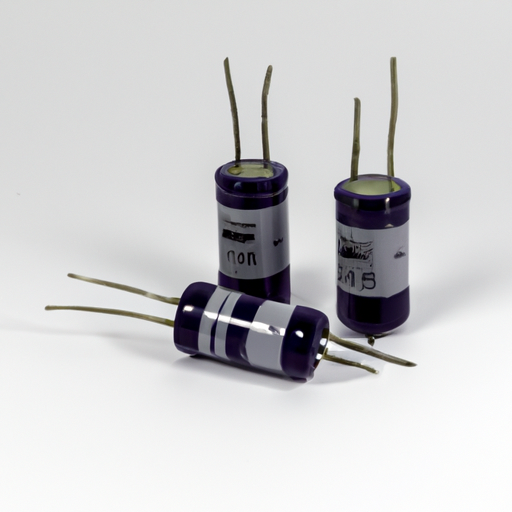What are the development trends in the resistor classification industry?
Resistors are common electronic components used for limiting current, regulating voltage, voltage division, current division, and other functions in circuits. With the continuous development and popularization of electronic products, the application range of resistors is becoming increasingly wide. In different industries, the classification and development trends of resistors also vary.

In the electronics industry, the development trends of resistors mainly manifest in the following aspects:
1. Miniaturization: With the trend of electronic products becoming smaller and lighter, resistors also need to continuously reduce in size and weight to meet product requirements. Therefore, the demand for miniature resistors, thin film resistors, and other small-sized resistors will gradually increase.
2. High precision: As electronic products become more complex, the requirements for circuit accuracy are also increasing. Therefore, the demand for high-precision resistors will gradually increase, such as metal film resistors, metal oxide resistors, etc.
3. High temperature resistance: Some special industries, such as aerospace, military, etc., have high requirements for the working environment of electronic components, requiring strong high-temperature resistance. Therefore, resistors with strong high-temperature resistance will be favored.
4. Environmental protection and energy saving: With the enhancement of environmental awareness, the production of electronic products is paying more attention to energy conservation and emission reduction. Therefore, resistors made of environmentally friendly materials will receive more attention, such as lead-free solder resistors, halogen-free resistors, etc.
5. Intelligence: With the development of technologies such as the Internet of Things, artificial intelligence, the degree of intelligence of electronic products is constantly increasing. Therefore, resistors with intelligent adjustment functions will gradually become a development trend to meet the needs of products for circuit adjustment.
In summary, as an important component of electronic components, the development trends of resistors mainly focus on miniaturization, high precision, high-temperature resistance, environmental protection and energy saving, and intelligence. With the continuous development and popularization of electronic products, the application range of resistors will become increasingly wide, and the requirements for the performance and quality of resistors will also become higher. Therefore, resistor manufacturers need to continuously innovate, improve product quality and technical level to meet market demands and development trends.
Resistors are common electronic components used for limiting current, regulating voltage, voltage division, current division, and other functions in circuits. With the continuous development and popularization of electronic products, the application range of resistors is becoming increasingly wide. In different industries, the classification and development trends of resistors also vary.

In the electronics industry, the development trends of resistors mainly manifest in the following aspects:
1. Miniaturization: With the trend of electronic products becoming smaller and lighter, resistors also need to continuously reduce in size and weight to meet product requirements. Therefore, the demand for miniature resistors, thin film resistors, and other small-sized resistors will gradually increase.
2. High precision: As electronic products become more complex, the requirements for circuit accuracy are also increasing. Therefore, the demand for high-precision resistors will gradually increase, such as metal film resistors, metal oxide resistors, etc.
3. High temperature resistance: Some special industries, such as aerospace, military, etc., have high requirements for the working environment of electronic components, requiring strong high-temperature resistance. Therefore, resistors with strong high-temperature resistance will be favored.
4. Environmental protection and energy saving: With the enhancement of environmental awareness, the production of electronic products is paying more attention to energy conservation and emission reduction. Therefore, resistors made of environmentally friendly materials will receive more attention, such as lead-free solder resistors, halogen-free resistors, etc.
5. Intelligence: With the development of technologies such as the Internet of Things, artificial intelligence, the degree of intelligence of electronic products is constantly increasing. Therefore, resistors with intelligent adjustment functions will gradually become a development trend to meet the needs of products for circuit adjustment.
In summary, as an important component of electronic components, the development trends of resistors mainly focus on miniaturization, high precision, high-temperature resistance, environmental protection and energy saving, and intelligence. With the continuous development and popularization of electronic products, the application range of resistors will become increasingly wide, and the requirements for the performance and quality of resistors will also become higher. Therefore, resistor manufacturers need to continuously innovate, improve product quality and technical level to meet market demands and development trends.






